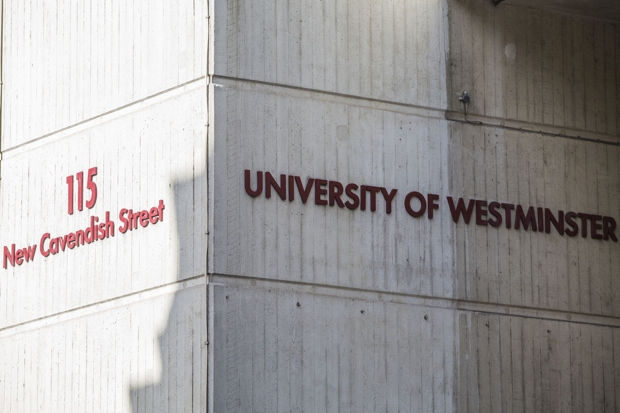Last month, the government’s Counter-Terrorism & Security Bill became law. One provision is the legal obligation it places upon ‘specified authorities’ to ‘prevent people from being drawn into terrorism’. ‘Specified authorities’ includes universities, whose vice-chancellors made several interventions as the legislation made its way through Parliament. The Education (No.2) Act of 1996 places a duty on universities and colleges to ‘ensure that freedom of speech within the law is secured for members, students and employees of the establishment and for visiting speakers’. University professors (myself included) pointed out very publicly that the Counter-Terrorism Bill, as originally drafted, seemed not to take account of this obligation. We were grateful that the House of Lords met this point, but further difficulties still abound.
No one – certainly not among my academic acquaintances – quarrels with the argument that those who incite violence should be banned from speaking on university premises. Inciting violence is in any case already a criminal offence, as is glorifying or condoning acts of terrorism. The law of the land does not stop at the gates of the academy. But having got its legislation onto the statute book the government clearly wants to go further, and agree with the vice-chancellors a list of speakers whom they would be obliged to ban from university premises. And if agreement cannot be reached, it appears that such a list would still be drawn up and imposed.
The criterion for inclusion in the list would be the holding and promoting of non-violent extremist views (violent extremism being already banned). So, quite naturally, my fellow dons and I have been asking ourselves what constitutes an ‘extremist’ view. After all, one man’s extremist is another man’s purveyor of common sense. And, in any case, ‘freedom of speech within the law’ means nothing if it does not encompass the freedom to articulate very unpopular views and if it does not uphold, unequivocally, the right to give offence.
The debate has inevitably been sharpened by media focus on ‘Jihadi John,’ who has been identified as a former student of the University of Westminster. I have no connection whatever with this university, but I cannot think of anything it could have done to prevent Mohammed Emwazi’s radicalisation, which was most likely facilitated via the internet, which universities have absolutely no control over.
If a university exists to promote anything, it is – surely – free and open discussion: dialogue (in other words) in which everyone has a chance to air their views, however extreme. The alternative is to force this dialogue to be relocated within the secretive world of internet forums, which cannot be in anyone’s interest.
The government seems to want universities to ban speakers merely on account of the views they hold. This would undermine the concept of academic freedom, which means the freedom to hold and articulate controversial or unpopular views. In the past, vice-chancellors have come under attack for not acting vigorously enough against ‘no-platforming’ policies (typically the hallmarks of a certain type of student union) in relation to speakers of, for example, Israeli nationality. Ironically, the government is now expecting them to institute a raft of no-platforming initiatives of their own. In the course of my academic career I have been called both an ‘extremist’ and a ‘radical’. I believe that the unelected House of Lords should be swept away (peacefully, I hasten to add!). I believe in my right to inject into myself, inhale, ingest and imbibe whatever I please, provided that in doing so I harm no other person. I also believe that the criminalisation of drug-taking is a social catastrophe and I have lectured on this in schools as well as universities. I believe that if my student audience wishes, of its own volition, to provide purely voluntary separate seating for female and male students, it should be free to do so. But most passionately of all, I believe it would be tragic if the freedom to express such views was eroded in the name of counter-terrorism. Geoffrey Alderman is Professor of Politics & Contemporary History at the University of Buckingham





Comments